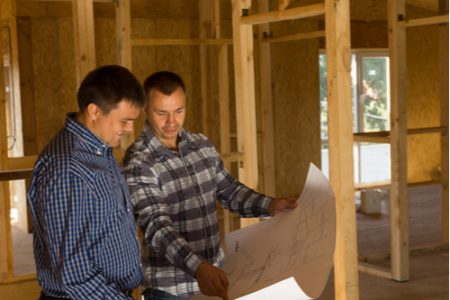
5 Reasons Builders Struggle With Concept Estimates
Lower priority, loose numbers and hasty interpretation of plans are often issues when builders create concept estimates.
So, why is it so hard for builders to estimate concepts? (and what to do)
Let’s take a look at various industry dynamics
- To Pay or Not to Pay for an Estimate
Industry professionals understand that generating an accurate estimate can take builders several days to calculate. For reliable pricing, builders need to check with suppliers, assess site set-up and step through the requirements line-by-line.
In short, to get an accurate build price, builders need to treat it like a real estimate – requiring several hours (or days) effort.
Some builders might request funding to support the time they put into a speculative activity and that’s where client’s need to be prepared to remunerate the builder, typically from $1,000 to $3,000.
When clients aren’t prepared to fund a builder’s estimate, the builder is compelled to produce a price as efficiently as possible.
In the best-case scenario, they might spend half a day generating a range that comes with many caveats.
In the worst-case scenario, they simply apply a m2 rate to provide your client with a figure.
- Assumptions Make an Ass………
When reviewing conceptual drawings, builders will make a multitude of assumptions to fill in the missing details.
There’s nothing wrong with this but it’s important all of the assumptions made are nominated. From foundations to fit off, and cladding to car charging; what are the assumptions?
Knowing them will avoid cost surprises later in the process.
Probably the biggest assumption builders make is that nothing will go wrong. Potential problems (& costs) include floaters underground, hidden asbestos during demolition, white ants, difficult neighbours, poor site access plus so much more.
Whatever estimating method you use, check it allows a contingency for surprises.
- It takes Too Long and the Client/Design Loses Momentum
Not only is estimating concepts sometimes a lower priority for builders, it’s also a highly speculative use of their time.
That means builders will work to respond to your request but need to prioritise it against existing, real, money-in-the-bank, paid work.
The result is that sometimes concept estimates take several weeks (or even months) for the builder to provide their figures.
See how to obtain online builders price guide at ProCalc. in just minutes.
- Market Response of One Can Be Misleading
If one builder prices a concept, that estimate that is entirely focussed on that builder’s circumstances, rather than market rates.
That is, if a builder is busy and booked up 18 months in advance, the pricing for the concept estimate will be presented in that context. They’re busy and if clients want to engage them, they need to make it worthwhile.
On the other hand, if a builder has an empty pipeline, the figure may be low-ball the figure to ensure winning the job further down the track. Unfortunately, that builder will be doing that with most of their estimates and will probably be busy again once working drawings are released for tender.
Either way, the client’s is in for a bumpy ride.
- It Can Jeopardise the Tender Process
When a builder has already provided rough concept estimates, it can create a dynamic that may undermine a robust tender process, such as:
- Other builders who tender become aware of the original engagement and choose not to progress with the tender through, a not unreasonable, fear that the client already knows (and trusts?) the first builder.
- An architect/designer/client feels they ‘owe’ the builder for the time and effort the builder has put into the original estimate.
- The original estimate sets the client’s prices expectations artificially high then a negotiated tender flows from that estimate.
I’m a big believer that great designs merit construction. However, to see great designs come to fruition, you need to align (1) your vision to deliver the (2) clients dream lifestyle according to (3) the client’s budget.
So, while you can deliver the vision to fulfill your client’s dreams, including realistic construction budget from the beginning will dramatically improve likelihood of construction.
ProCalc – Professional Construction Estimator (free trial)
Author Richard Armstrong is a project manager & former registered builder who specialises residential construction pricing. With post-grad property qualifications and over 15 years’ design & construct experience, he is the Founding Director of ProCalc – Professional Construction Estimator. Free trial at www.procalc.com.au.









